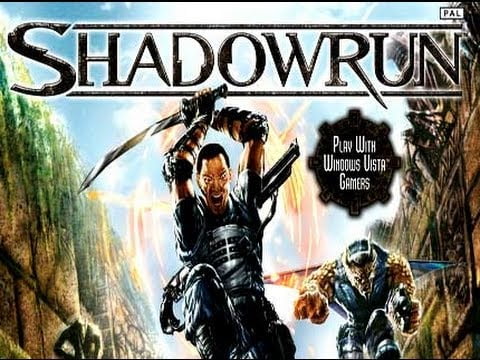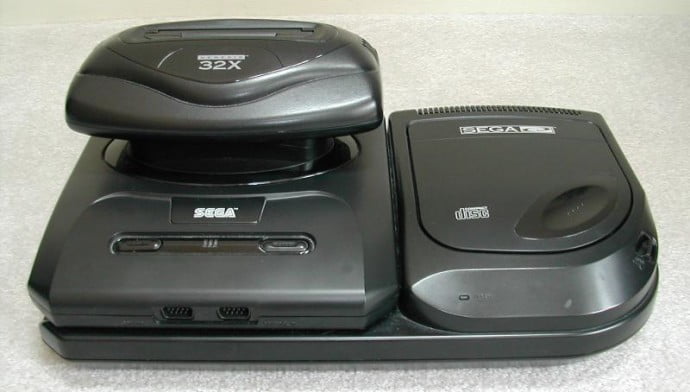“This could be the last traditional console generation.”
Sound familiar? It’s a rallying cry that we’ve heard for at least the last two generations, with some optimists going as far as to proclaim the Gamecube/Xbox era the death knell for what we traditionally think of as a console generation – a handful of systems with set specifications released a year or so apart, supported for between five and ten years (on average), and then put out to pasture in front of a fancier model that may, if you’re lucky, play the games of the previous console.
We’ve all been there, right? But thanks to a few recent and surprising announcements from Microsoft, as well as some fairly reliable rumors regarding Nintendo’s next console, the idea of platform generations as we know it may actually be coming to an end.
Microsoft announced earlier this month that they will be bringing the Xbox One and Windows 10 platforms together to create what they call “Universal Windows Applications” (or UWP), a system that aims to make cross-platform development easier by providing a similar set of tools for Windows and Xbox One developers to work from, and Microsoft has already confirmed that a large number of in-house Xbox One exclusives like Killer Instinct: Season 3 and Quantum Break are being developed and will be released across both platforms as UWP titles.
The news was met with some mixed responses – developers decried the UWP concept as one that would limit the creativity of PC studios, hobbyists, and even mod makers all in the name of unifying all of Microsoft’s platforms – but it isn’t an idea without merit. Platform holders like Valve and Microsoft and developers alike have been striving to both simplify cross-platform development and bridge the gap between the living room and wherever your PC lives, and while it has some kinks to work out, the UWP concept could be the culmination of a decade or so of false starts and misplaced hope when it comes to bridging the PC and console spaces.

What’s almost more interesting, however, is the changes that the UWP concept brings to the idea of traditional console hardware generations. Xbox boss Phil Spencer announced that the company’s concept for the Xbox One going forward is much more akin to the kind of developments we see in the smartphone market with long-term platforms like the iPhone or the Galaxy.
Instead of getting a complete revision and launching a brand-new console every five-ish years, the Xbox One could receive occasional hardware upgrades and new models, all while using the same operating system to ensure backwards compatibility.
Imagine in three years’ time having the chance to buy a slightly cheaper and redesigned “Xbox One S” or “Xbox One C” that has the capacity to run new games designed for it as well as all of your previously-bought Xbox One games thanks to the unity brought on by the shared OS between each platform.
Interestingly, Nintendo seems to be taking a similarly OS-focused approach with their upcoming NX console. A fairly reliable source for Nintendo rumors named “Geno” recently unearthed some dirt regarding Nintendo’s new system, and among all the interesting rumors surrounding the system’s controller, one of the most fascinating rumors sheds light on the system’s OS.
Currently dubbed NintendOS, the NX is rumored to run on a dedicated operating system that functions similarly to an Android device and will allow you to pair it with a number of other devices in your home, the most specific example being the ability to pair it with your cell phone to display texts and incoming calls on your TV while using the NX.

While Nintendo hasn’t said anything much about NintendOS one way or another, it isn’t hard to imagine them taking an approach similar to Microsoft, especially considering the constant rumors surrounding the NX serving as combination home console and handheld system. I, for one, am excited about where this is going.
Imagine a future where game consoles are upgraded in increments every few years. Sure, it might sound like a pain paying $200 for a new Nintendo system when the last one isn’t too old, but if they stick with a more smartphone-esq business model, you shouldn’t be under a ton of pressure to upgrade for specific games thanks to the universal operating system, they may just not run as well or be missing some features – not unlike playing a PC game where your system doesn’t exactly max the settings out.
Heck, each iteration of a console could even come with its own features and benefits. Scaled-down models could be sold without a disc drive, some versions could output in higher resolutions, and so on. Sure, it could be kind of a pain to pay a little more for the extra features, but any company adopting this strategy could do very well for itself by unifying its user base across a common OS – just so long as the exclusives don’t get out of hand, otherwise you wind up with another Sega CD/32X/Saturn situation on your hands.

Hardware manufacturers could actually stand to benefit further from this as well, thanks to the increased flexibility of a dedicated multi-platform OS. If the rumors surrounding the NX being a combination handheld and console pan out, then Nintendo can really broaden their user base without dividing it, as handheld sales have tended to do in the past. Parents can breathe a sigh of relief knowing they only have to buy a game once, and if Nintendo sells the two versions separately, they’ll be able to pitch the exact same library across two different platforms, with neither one missing out on anything. Who knows, maybe we’ll even see a return to the 3DO days where one system holder can farm out their platform specs to different companies to handle the manufacturing – if it was good enough for Nintendo in the Famicom days, it’s good enough now!
Obviously a lot of this is just rumor and speculation, and for all we know Microsoft will back out and go back to their standard console generations like it’s always been. But me, I’m excited to see where this new OS-focused console strategy could lead, and I can’t wait to see what else Microsoft and Nintendo can offer in this regard.
